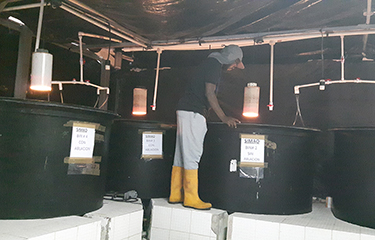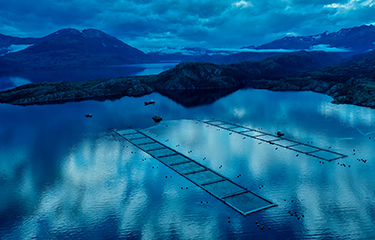 Simao Zacarias
Simao Zacarias
Researcher Simao Zacarias’ work at the University of Stirling in Stirling, Scotland, has been focused the standard shrimp hatchery practice of unilateral eyestalk ablation to achieve higher egg production. Ablation has not only caught the attention of animal welfare advocates who are concerned about animal cruelty, but Zacarias notes that ablation of broodstock produces offspring that are more vulnerable to disease.
Based on evidence from research in shrimp hatcheries in Honduras and Thailand, Zacarias proved in laboratory testing that postlarvae and juveniles from non-ablated Pacific white shrimp broodstock showed higher survival rates when they were challenged with Acute Hepatopancreatic Necrosis Disease (AHPND, also known as Early Mortality Syndrome, or EMS) and White Spot Virus Disease (WSSV).
Zacarias believes that high quality, nutritious feed being used with broodstock in their pre-maturation stage can result in similar boosts in production and is a legitimate alternative to eyestalk ablation.
“A dry and fresh feed composed of squid and polychaete stimulates broodstock to mature faster, leading to improved results in the breeding tanks,” he said. “Altering broodstock’s exposure to light, coupled with the high-quality feed, can enhance those results.”
Zacarias’ work is driven by the demand for better animal welfare practices in shrimp hatcheries.
“Retailers and buyers want the hatcheries to stop using eyestalk ablation,” he argued. “We have to use practices that improve welfare and reduce mortality. Firstly, ablating affects the well-being of the broodstock and leads to a higher mortality rate, which is bad for hatcheries. And secondly, the offspring of non-ablated broodstock are more robust animals with a higher survival rate when they are challenged by bacterial disease or White Spot Syndrome Virus. So even if not ablating results in increased production costs for hatcheries, the value of your end product potentially increases.”
Photo courtesy of Global Aquaculture Alliance







